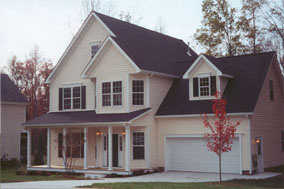Once a modular home in Virginia Beach, VA is built, there is no visible difference between it and a site-built home. The unfortunate part of this truth is that it is also impossible to distinguish the fact that the modular home is much more structurally sound that its stick-built neighbors. But, perhaps, the most often...
Read MoreModular Homes VA Blog
The selective stylish and flexible modular floor plans move many design enthusiasts switch to modular homes to face and end the dilemma of choosing between alternatives which are almost alike. You can definitely make a statement and be stylish with your modular homes for less cost. Nothing beats the price of modular homes in Williamsburg,...
Read MoreMany homeowners can testify that modular homes in Chesapeake, VA built by Tidewater Custom Modular Homes are greener and more efficient with respect to cost and energy. As compared to homes built on-site, modular homes waste less raw material as they are manufactured and shipped in enormous amounts. Custom-built modular homes are almost always more...
Read MoreWhat better way to say hello to summer is to have summer home additions done before the warm weather hits. With Tidewater Custom Modular Homes, all these are possible. If there is any part of your home that you find out of season, home remodeling can be conveniently done in no time. You own a...
Read MoreDid you know that Custom-Built Homes in Virginia are highly energy-efficient and very cost-effective for people looking to build? There are many reasons why modular homes continually appreciate in value and become a better alternative to stick-built homes. Because modular homes in VA are turning into an effective alternative to traditionally-built houses and mobile homes,...
Read MoreProtect your investment as you enjoy many wonderful years and memories of living in one of Tidewater's Best Custom Home. They can range from modest starter homes to complex homes. We make sure that our production processes for custom-built modular homes in Virginia Beach VA are accurate and always up-to-date in order to meet and...
Read MoreLuxurious modular interior designs are now made possible and affordable through modular home construction. In fact, nearly all you wish and plan for can be turned into a modular home. Modular floor plans vary in style and size. Therefore, it is not true that modular homes look alike. They can be planned according to your...
Read MoreNatural calamities make people homeless most of the time. They are displaced after losing their homes. Tidewater Custom Modular Homes make any locality better prepared for inevitable emergency cases. Home builders can design post-disaster housing, which can be built fast to cater the needs of all residents of the affected areas. One of the many...
Read MoreCustom-built modular homes in Virginia Beach, VA are like jigsaw puzzle pieces only that they are on a much larger scale. Because of this nature, prefabricated homes are said to be the future of the modern construction market. There are definitely a lot of things you can do when building and owning one. One of...
Read MoreTidewater Custom Modular Homes are built to fit all the distinct designs that homeowners have in mind. Today's consumers now have more options when it comes to customization and construction of their dream house. Prefabricated modular homes in Virginia Beach, VA have pre-formulated floor plans and special features to help you personalize and customize your...
Read More




